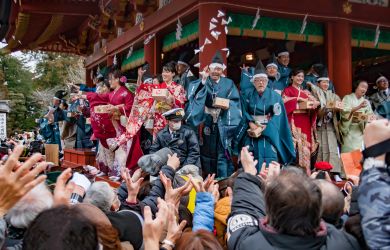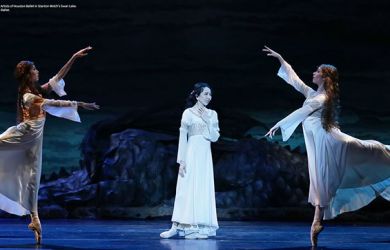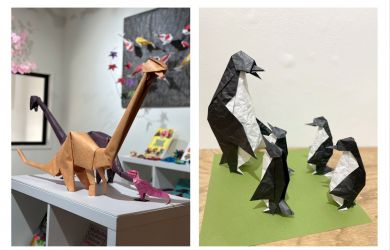
Originally published on metropolis.co.jp on August 2012

The last time Metropolis spoke with storied muse Patti Smith was soon after 9/11. She’d come to Japan for gigs and a challenging exhibition of new art on Islamic themes—think the remains of the World Trade Center rendered in Koranic script.
A decade on, the poet-musician-artist has just released “Fuji-San,” a prayer to Japan’s sacred mountain penned after 3/11 that appears on her fresh album Banga.
“I was deeply concerned about the people and their morale,” Smith says by phone from Amsterdam, where she’s set to play the city’s famous Paradiso. “Lenny [guitarist Lenny Kaye] and I wanted to write a song but we didn’t want to write specifically about the disaster. Lenny was working on some chords and the words just came to me. It’s a simple song based on 16th-17th century Japanese literature. It’s a prayer to the mountain to shelter the people.”
Smith is quick to draw the line from Fukushima to larger problems. “It’s a microcosm of the challenges we face, both dealing with the forces of Mother Nature and with our own hubris—our lack of comprehension about the possible repercussions of an earthquake.”
Although a huge fan of all things Japanese, Smith didn’t perform here until the 2001 Fuji Rock Festival, 26 years after her debut album Horses inked her indelibly in the history books of rock music. Aside from two more Fuji appearances, her only proper solo tour was in 2003, meaning a full decade will have passed by the time the country gets a taste of Smith’s Banga at a string of shows next January.
“I’ve been to Japan on my own to travel and see friends,” she notes. “The last time I went to the grave of Yukio Mishima. I like traveling through Japan. It’s like a book that keeps blossoming—it just unravels before you.”
“I’m looking forward to this tour,” she continues. “We’re going to Hiroshima for the first time, and I feel as an American it’s important to pay one’s respects. And we’re going to Fukushima. We’re going to do something special there.”
Not only is Smith’s upcoming tour of Japan her first in a decade, Banga is also her first album in eight years. In the meantime, the creative polymath has been occupied with a slew of projects, releasing an acclaimed memoir of her relationship with controversial photographer Robert Mapplethorpe, Just Kids in 2010.
Why an album now? “It was overdue,” she answers. “For a while I was devoted to my photography, and then I was writing and touring Just Kids, and working on two art installations. Also, because I’m not a musician, writing songs is not part of my daily discipline.”
Banga sweeps from meditations on mortality—in the form of Amy Winehouse tribute “This Is The Girl”—to the bloody discovery of America (“Amerigo”), to a birthday gift to friend Johnny Depp (“Nine”), on to a vintage 10-minute outing of spoken-word psychedelia (“Constantine’s Dream”).
In an age of digital singles, it’s emphatically an album, a kaleidoscopic 12-song pane into one woman’s soul. It’s also infused with literature, taking its name from Pontius Pilate’s dog in Russian novelist Mikhail Bulgakov’s The Master and Margarita.
Does Smith worry about reaching today’s attention deficit disorder-challenged listeners?
“I don’t even think about it,” she responds crisply. “My first album, Horses, has an 11-minute long song… and ‘Radio Baghdad’ is 14 minutes. All our albums have had one long improvisation, since 1975. It just seems to me to be part of the voyage of a record. I know it’s not how people are listening to records, but I reserve the right to do it the traditional ’60s way. It’s like making a symphony.”
Which is not to say that Smith resists change. For Banga she’s uploaded song-by-song video blogs to her website. “I’ll learn from present-day technology and try to stay in step, but in other ways I have to do my work, and people who will hear it will hear it,” she reasons.
Banga has inevitably been greeted by many as Smith’s best album since Horses. And if any aging rocker can reach a new generation, it’s Smith. Her voice bears little sign of wear, and in Japan tours she’s been a tiger on stage.
Smith’s defiant dynamism is testament to the healthy lifestyle and oversized spirit that gave her strength as she experienced first the death of former lover Mapplethorpe of AIDS in 1989, and then that of husband and father to her two children Fred “Sonic” Smith of heart disease in 1994.
But Smith rejects the idea of herself as a rock survivor. “I’m not a survivor, I’m a liver,” she insists. “The only thing I’ve survived is tuberculosis and scarlet fever and measles and mumps as a child. I don’t feel like I was on a storm-tossed sea and I’m the only survivor.”
Has being a “liver” allowed Smith to be an inspiration to many people? “I don’t know,” she laughs. “I’m a worker. If I can be a template, all I can say is that being enthusiastically engaged in work, and rejoicing in the work of mankind, I’m happy every day.”
Smith eulogizes Amy Winehouse, but adamantly refuses to romanticize a rock ’n’ roll lifestyle. “Anyone can be self-destructive,” she observes. “It’s not just an artistic sensibility. Whatever one decides to do, you have to be healthy to finish your work. I’m 65. I have to stay sturdy, but also keep myself open to all kinds of sensations. I’m not saying a person needs to live a square life. But when Amy Winehouse stopped taking care of herself she was no longer able to give to other people.”
Smith may not romanticize self-destruction, but that’s not to say she isn’t romantic. Her standout song in the popular mind remains the paean to youthful love “Because the Night,” and Just Kids paints an absorbing portrait of two youthful lovers’ downtown New York journey through drugs, sex and creative rapture to ultimate artistic acclaim.
Does she have a sense of where the current generation’s hotbed of artistic ferment is to be found? “I can’t say because I’m older,” Smith answers. “Younger generations will have to talk about their own art. What makes a scene interesting is it’s a lot of young people trying—happily or unhappily—to find who they are and what they can do. The scene isn’t made of fully formed people. We were all in our 20s at CBGB but I’m in my 60s now.”
Smith is no longer part of a specific scene, but she doesn’t lack for drive. “I don’t feel any lack of intensity because I’m always working,” she says. “I can feel intensity alone in a hotel room reading a book if it’s good.”
Smith’s clear-eyed appraisal of a rock ‘n’ roll lifestyle is matched by a sober view of man’s self-destructive supervision of the planet. “Pollution travels across borders, but we don’t want to be joined by chemicals or tainted water,” she says. “We want to be joined by positive communication and clean water. We have to make some decisions globally about what we’re going to do to better our world, and everyone has to be a part.”
Like fellow indestructible Boomer friends Bruce Springsteen, cowriter of “Because The Night,” and Neil Young whose environmental ode “After The Gold Rush” she covers to end Banga, Smith may even out-idealize the millennial youth of today, jaded as they are by the Great Recession.
“I don’t want to seem like a negative person,” she concludes. “I’m very positive. I’m very excited about life. I just think in order to preserve it we have to unify as a people. And we have to be ready to work, ready for the revolution!”
Shibuya AX, Jan 23 and Bunkamura Orchard Hall, Jan 24 (listing).
patti smith timeline
1946
Born in Chicago to Jehovah’s Witnesses Beverly, a waitress, and Grant, a factory worker
1967
Moves to New York, becomes involved with “the artist of my life,” photographer Robert Mapplethorpe
1975

Releases influential first LP Horses
1978

Single “Because the Night” reaches #13
1980
Marries Fred “Sonic” Smith, former MC5 guitarist. Settles in Michigan, mostly retires from music
1982
Son Jackson born, now married to The White Stripes’ Meg White, and guitarist for Detroit band Back In Spades
1987
Daughter Jesse born, who would go on to play piano in her mother’s recordings
1988

Releases LP Dream of Life
1989
Robert Mapplethorpe dies of AIDS at 42, leaving behind influential body of work
1994
Fred Smith dies of heart attack at 45. Ranked as 93rd greatest guitarist by Rolling Stone in 2003
2001

First Japan gig at Fuji Rock Festival
2003
“Strange Messenger and Cross Section: The Work of Patti Smith” exhibition at the Parco Gallery
2007
Inducted into the Rock and Roll Hall of Fame. Dedicates it to late husband Smith
2010

Publishes memoir Just Kids
2012

Releases Banga





